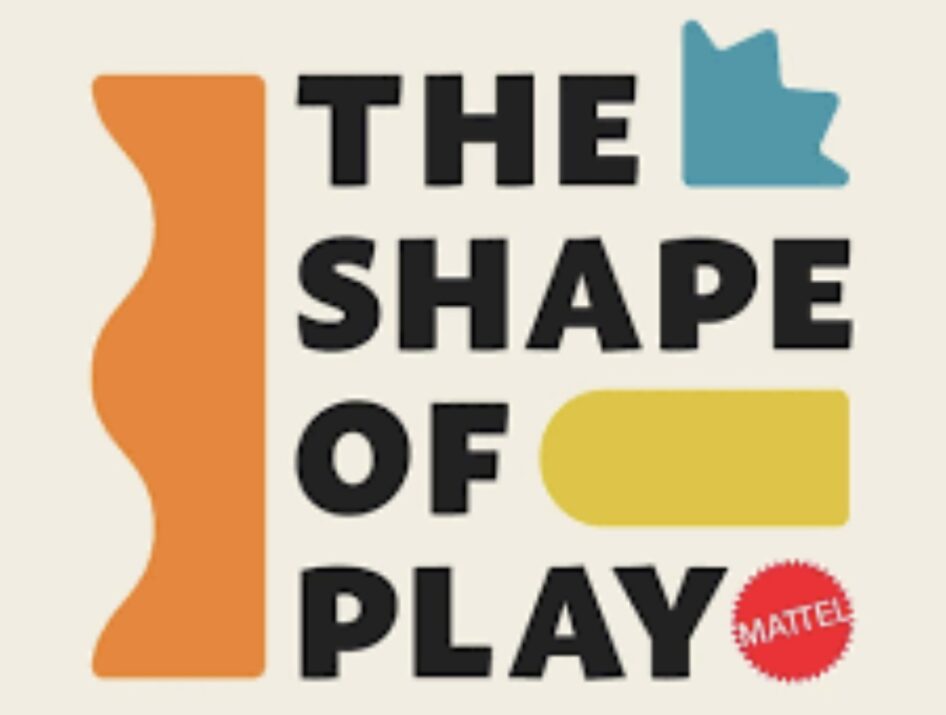
Mattel, Inc, a leading global toy and family entertainment company and owner of one of the most iconic brand portfolios in the world, unveiled The Shape of Play, a first-of-its-kind global research study in celebration of the company’s 80th anniversary.
For eight decades, Mattel has created innovative products and experiences that inspire fans, entertain audiences, and develop children through play. Now, that mission extends to people of all ages, with this first-ever study spanning generations worldwide.
Based on insights from over 33,000 participants across the U.S., China, Japan, Germany, Finland, Brazil, and South Africa, the study highlights the growing need for play and its valued, lifelong benefits and critical role in fostering well-being, rebuilding connections, and restoring happiness.
Amid rising stress and screen time, social isolation, and joylessness, The Shape of Play shows how play is valued by all and helps people cope, connect, and thrive. 87% of all respondents agree it reduces loneliness and isolation, and 85% see it as integral to daily life.
“Play is not only brain building and connection driven, but it also is a way to sort through emotions and thoughts, make sense of it and ultimately grow as a result thereof,” says Dr. Jo-Marie Bothma, a leading South African Clinical Psychologist and Play Therapist.
The study categorizes motivations into four key areas: expression and experimentation; escapism and well-being; strengthening connections and collaboration; and personal growth and learning. Play boosts self-expression, relieves stress, combats isolation, and strengthens relationships, while promoting essential life skills like resilience, leadership, and empathy.
The Shape of Play uncovers a human story and reveals a global story of parents preserving childhood magic, educators making learning fun, and individuals finding joy in everyday play. The message is clear: encourage conversations around play. Whether in big moments or micro-moments, play is key to rekindling joy, deepening relationships, and fostering a more connected world.
Chris Down, Executive Vice President and Chief Design Officer at Mattel said, “Mattel has spent 80 years studying the value of play with children. This global study validates that play isn’t just for kids—it’s essential for everyone and is a call to action. For brands, creators, and educators, we have an opportunity to expand play’s possibilities and unlock its power to improve lives.”
KEY FINDINGS FROM THE STUDY:
· Play is a Human Superpower and isn’t just for kids—it’s lifelong, essential, and transformative: 94% agree: play matters at every age. From childhood adventures to adult passions, play fosters joy, builds resilience, and deepens our human connections.
· In a world of stress and disconnection, play is the antidote: 87% say it helps combat isolation and loneliness. Whether through toys, games, pets (as 84% of respondents said), or online games (62%), play lifts our spirits and bridges social differences across generations, cultures, and communities.
- But play is under pressure and we’re feeling the loss: Over half of kids feel “part adult.” Most adults still feel “part child.” Yet one in three say they don’t play enough, crowded out by time, time, loneliness, safety concerns, and modern life.
- Play sparks the ideas that change everything: Nearly 70% of all respondents say their most creative ideas come through play. It’s how we imagine, invent, and solve whether at home, in the workplace and beyond.
- Across the globe, play takes many forms, but its impact is universal: From joy and triumph in Finland to connection in Brazil and experimentation in South Africa, play reflects culture and reveals what connects us all.
- Toys still matter, now more than ever: 81% of all respondents say physical toys enhance the play experience. With empathy-boosting benefits and an adult collector segment, toys remain vital across every stage of life. Mattel’s expertise supports the unique developmental benefits tied to physical play, with data indicating that playing with dolls increases brain activity linked to empathy and social processing skills.
· Play Personalities: The Shape of Play identified six Play Personalities—Colorful Creators, Skill Seekers, Solo Navigators, Curiosity Cultivators, Memory Makers and Social Sparklers—celebrating the idea that there is no one right way to play. Figure out your Play Personality with the quiz here.
With 80 years of expertise, Mattel has long studied play in children and recognized its transformative power including multi-year research on the social benefits of doll play. Mattel’s Global Consumer Insights group partnered with MADO, a boutique insights and strategy studio, to conduct The Shape of Play.
Mattel has launched an online hub featuring the full in-depth The Shape of Play study and documentary, offering profound insights not only for toy design, fans, parents, caregivers, educators and policymakers worldwide.
